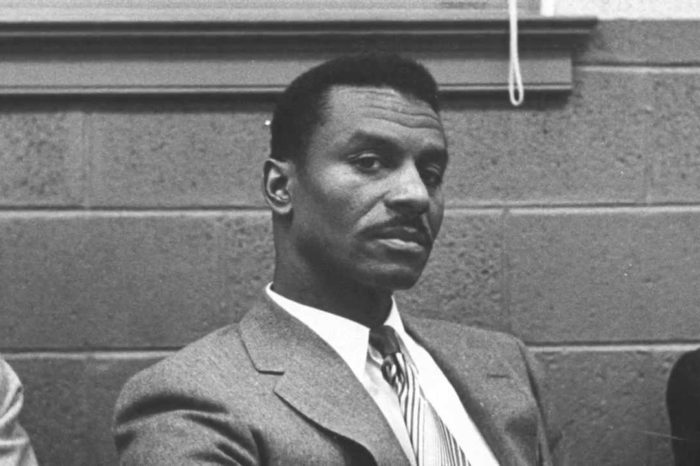Massachusetts Charter Schools: “A Fire You Can’t Put Out”
This past week, at the urging of state K-12 education commissioner Mitch Chester, Deval Patrick’s Massachusetts Board of Education took a vote against Massachusetts’ nation-leading and achievement gap-closing charter schools. The vote reminds us once again how intellectually warped so much of K-12 education policymaking remains.
The biggest victims of this BOE vote are the tens-of-thousands of underserved poor and minority children trapped in chronically underperforming urban school districts with no school choices and zero way out.
The vote reminds us that despite the huge gains the country has made since the 1954 Brown v. Board of Education and the events in places like Birmingham, Alabama, in the early 1960s, as a people America still has, in the words of poet Robert Frost, “miles to go before [we] sleep,” to make access to equal K-12 educational opportunities a reality.
These kinds of events recall the life and work of the great unsung Birmingham Civil Rights leader, the Rev. Fred Shuttlesworth (pictured above). More on him in a minute.
For those who think 1960s Civil Rights analogies to modern K-12 education policymaking are overwrought, let’s remember that piles of independent research now make it clear that one year in a high quality Boston charter school is equal to two years in the Boston Public Schools.
In the minority-majority urban Massachusetts school districts, 30 percent of the students drop out and among the students who stay, over half score in the lowest two categories on the MCAS test. If this isn’t a 21st century Civil Rights issue, what is?
As the Worcester T&G editorial board wrote concisely in its Friday editorial, entitled “An affront to freedom,” about the Massachusetts BOE’s anti-charter vote:
“Sadly, state education officials have made it clear they are more interested in protecting the jobs of bureaucrats and teachers than in letting real choice and competition do for education what they do for every other consumer market.
The BESE’s latest move is to give so-called student growth scores 25 percent of the weight in the charter-school formula, up from 20 percent. Ostensibly, that move is to recognize districts that, while still seeing below-average performance, are making rapid progress.
It means that some urban communities, including Lowell, Somerville, and Worcester, will no longer be considered among the bottom 10 percent of school districts in terms of academic performance, thus dampening charter school growth.”
The most astounding aspect of this brazen BOE move to limit Massachusetts’ charter schools, which have demonstrably closed the achievement gaps between poor/minority kids and their wealthier and often white peers, is that it takes place within a week of the 50th anniversary of the passage of the landmark 1964 Civil Rights Act.
Enter Rev. Fred Shuttlesworth, whose leadership was the key to getting Dr. Martin Luther King, Jr. and the Southern Christian Leadership Conference to come to Birmingham (the South’s most bitterly segregated city) in 1963. The direct action of Civil Rights leaders like Revs. Shuttlesworth and King set up the historical confrontation with Bull Connor, his cadre of racist, billy club-wielding Birmingham policemen, and the firemen who opened up high-pressure fire hoses on children and students protesting to gain their Civil Rights.
These actions set the stage for King’s famous “Letter from Birmingham Jail,” Gov. George Wallace “standing in the school house door,” King’s March on Washington and “I Have a Dream Speech,” the tragic bombing of the Sixteenth Street Baptist Church that killed four little girls, and finally the July 2nd signing of the 1964 Civil Rights Act.
Drawn from the biography of Rev. Fred Shuttlesworth by Andrew Manis, A Fire You Can’t Put Out, here’s a story that highlights what farsighted and genuine Civil Rights leadership should look like.
On a Monday night in 1959 in the St. James Baptist Church, the Rev. Fred Shuttlesworth, (whose house had already been bombed by the Klan on Christmas in 1956, who was beaten with bike chains and baseball bats by a segregationist mob in 1957, and whose church was bombed in both 1956 and 1958) was assembling a mass meeting of his parishioners and activists.
When, after weeks of harassment from the Birmingham Fire Department, firemen showed up at the church falsely claiming a “report” was called in about a fire in St. James Baptist. Upon leaving the church to resume the mass meeting at another church a block away, Fred Shuttlesworth told the Birmingham Fire Chief, “Y’all think it’s a fire in there? You know there ain’t no fire in there. The kind of fire in there you can’t put out with hoses and axes!”
This story should be instructive to Massachusetts charter school supporters. After all of the Patrick administration’s, Mitch Chester’s, and the board of education’s petty harassments, the commonwealth’s charter school movement is not unlike those who gathered in St. James Baptist Church so many decades ago.
The Fred Shuttlesworth model of defiant, principled Civil Rights leadership is what Bay State charter activists will need to channel to overcome the modern-day Bull Connors and George Wallaces who want to wall off poor and minority kids from their natural educational birthrights and deprive them of quality educational choices.



